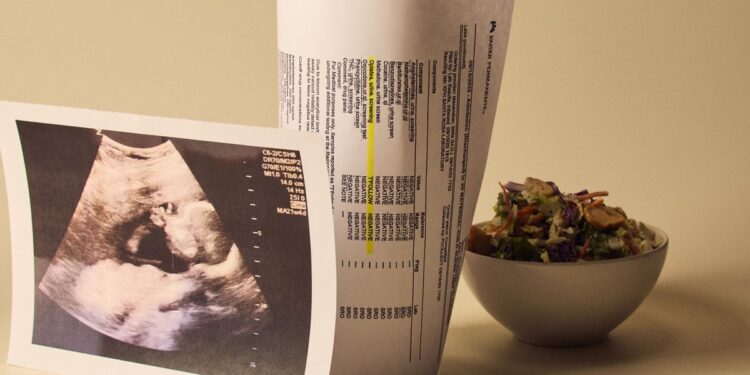A growing number of states are considering legislation to set up protections for patients who might be drug tested when they give birth.
Three of the bills were introduced following an investigative series by The Marshall Project and Reveal that exposed the harms of drug testing at childbirth — including how many patients are often reported to child welfare authorities over false positive or misinterpreted test results, and how women have faced child welfare investigations and removals over medications the hospitals themselves gave them.
In New York, a bill that would require hospitals to obtain consent from patients before drug testing has been advancing. Two proposed bills, in Arizona and Tennessee, failed to make it out of their legislative sessions.
“We know when there’s secret drug testing, families are often torn apart,” said New York state Rep. Linda Rosenthal, a Democrat from Manhattan, who noted cases of women who were reported to child welfare over positive tests caused by poppy seeds and prescribed medications. “This is not some theoretical discussion we’re having here. This is really something that occurs.”
The New York bill, versions of which were first introduced by Rosenthal beginning in 2019, has faced years of resistance from state lawmakers. Similar efforts in Minnesota, Maryland and California also failed in prior legislative sessions. But in New York, The Marshall Project’s reporting on hospital drug testing helped convince more lawmakers to get on board, according to activists who lobbied for the legislation.
If passed, the law would permit hospitals to drug test birthing patients and their newborns only if medically necessary. It would also require them to obtain informed consent from patients before drug testing them, which would include disclosing the potential legal consequences of a positive test result.
Similar bills were introduced this year in Tennessee by both a Democrat and Republican. Sen.Janice Bowling, a Republican from Tullahoma who frequently advocates for parental rights, was first approached about the issue by a progressive advocacy group and quickly saw the bipartisan appeal. She said she was shocked to learn that women had been tested and reported over false positive tests caused by poppy seeds, the heartburn drug Zantac and other legal substances.
“Can you imagine if someone took the baby from you out of your arms or never even let you hold your child?” she said. “Taking children from families because a state entity says they have the authority to determine whether or not you’re a fit parent, that’s a slippery slope.”
After a particularly contentious legislative session, the bill failed to make it out of committee. Bowling said she plans to take up the bill again in 2026.
In Arizona, lobbyists and activists said they plan to pursue a similar informed consent bill next legislative session, in addition to continuing to pursue a more far-reaching bill that was introduced but failed to advance this year.
The Pro-Choice Arizona Action Fund and the reproductive advocacy group Patient Forward began pursuing the legislation following a Reveal and New York Times Magazine investigation in 2023 that detailed the story of an Arizona woman whose baby was placed in foster care after she was reported to child welfare authorities for taking prescribed Suboxone during her pregnancy. Current Arizona law requires healthcare providers to contact child welfare anytime a baby is born exposed to controlled substances, including legal medications such as Suboxone and methadone.
“We were like, how does this happen? What are the mechanisms in place that allow this to happen?” said Garin Marschall, co-founder of Patient Forward. “We wanted to understand what we could do to make sure that it didn’t happen again.”
The proposed legislation would have revised Arizona law to bar positive drug tests alone as a reason for a child welfare report or investigation. If healthcare providers have no concerns about abuse or neglect, the law would require hospitals to notify the health department instead of child welfare authorities. Other states, such as Massachusetts and New Mexico, have passed similar laws, while hospitals around the country have also made changes to their drug testing policies.
In New York, advocates said their bill has historically faced resistance from lawmakers who worry that asking patients for consent to test them for drugs will lead more women to decline such tests. But healthcare providers interviewed by The Marshall Project have said it’s rare for patients to decline a drug test, and even so, drug tests rarely provide useful medical information. Doctors don’t typically need drug tests to identify or treat babies exposed to substances in the womb, and a positive test does not actually prove that a parent has an addiction, the experts said.
Instead, studies have found that screening questionnaires, which collect certain information from patients, such as their partner’s history of drug use, are effective at identifying someone with an addiction without putting them at risk of needless child welfare intervention. Doctors have found that maintaining open communication with patients is also the best way to help them, whereas studies show more punitive policies lead women to avoid prenatal care altogether.
“If the trust between a doctor and patient is broken, that will lead to much more severe consequences for the child and the mother,” Rosenthal said. “Everyone does better if that doesn’t happen.”























